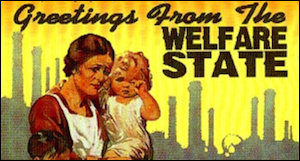All customers of Dominion Energy Virginia and Appalachian Power in Virginia will begin soon to pay an extra monthly charge related to the coming Percentage of Income Payment Program, the General Assembly’s new electricity cost subsidy for low-income residential customers.
The PIPP was initially created in the 2020 Virginia Clean Economy Act and then revised with a bill in 2021, but just when then bill subsidies begin is still to be determined. The Department of Social Services, which will determine eligibility, still needs to devise the program. No start date is specified in the law.
The bill charges we will be paying in advance are just to raise the $3 million per year that is being allocated to cover that administrative task. The General Assembly has ordered customers to pay that, too, perhaps not being aware that it would soon be sitting on a $2.6 billion surplus.
Here are the July 29 State Corporation Commission orders establishing the charge for Dominion and APCo customers. Dominion customers will provide $2.4 million and APCo customers $600,000 per year. Far larger amounts will be collected when the benefits begin to flow in the future.
Do not confuse PIPP with the amounts ratepayers are also being charged for unpaid Dominion bills during the pandemic, including the $206 million Dominion is seeking to charge off in the pending rate case. The General Assembly convening today has a proposal to extend the moratorium on disconnects for non-payment to March 2022.
The PIPP plan now is to determine eligibility based on 150% of the federal income poverty level, about $40,000 for a family of four. Eligible families will only have to pay 6% of their income for an electric bill that does not include electric heat, and 10% of income for a bill that does include electric heat. The extra charge, a tax really, added to the bills of others cover the rest if the bill is larger than that.
Additional funds will also be spent on efforts to reduce energy usage by PIPP households, in ways yet to be determined. Some of the more aggressive language (“whole home refits”) considered in the past General Assembly session didn’t survive.
The 2021 legislation capped the program at $100 million in benefits per year for Dominion customers and $25 million for those of APCo in the western parts of the state. Before the 2021 bill, the SCC had been considering initial universal service fees to pay for PIPP of $1.15 per 1,000 kWh for Dominion and $1.80 per 1,000 kWh for APCo. Whenever this really kicks off, those may be close to the final amounts. Initially.
It is called a universal service fee because all customers pay the same amount, and customers in the two monopoly territories who use other suppliers still must pay. It cannot be bypassed. Resistance has proved futile. Residential, commercial, industrial and government customers all pay the same charge per kilowatt hour, not the case with the rest of their bills.
But until the programs start, the initial charge will be pennies a month, a placeholder for things to come. With the caps established in the Code of Virginia now, it will take General Assembly action to lift them. It is not unreasonable to expect that pressure to do so will rise as the costs of Virginia’s green energy transformation being to spike everybody’s bills. In other states where this exists, natural gas and other utilities also impose surcharges to cover low-income subsidies.
For Dominion customers, another charge in pending, this one substantially larger. The SCC has still not issue a final ruling in its review of the company’s plan to add yet another rate adjustment clause (RAC) for the Regional Greenhouse Gas Initiative. During the case, waiting simply for a final order, the figure of $2.39 per 1,000 kWh was discussed. When that is decided, Bacon’s Rebellion will provide details.
What’s the delay? Dominion has been demanding and some consumer groups have been resisting the inclusion of financing costs in the special charge added to bills. It is a small amount of the total now, but again, could grow once established.
The average Virginia residential electric bill is not really 1,000 kWh per month but more like 1,100. These two charges for Dominion home customers, totally unrelated to the cost of service for those who pay it, will be another $4 per month or almost $50 per year or more for many households. It will be a substantial annual number for commercial and large industrial users.
The General Assembly likes taxing you indirectly through your electric bill and hopes you never notice. Most Virginians haven’t.


Leave a Reply
You must be logged in to post a comment.